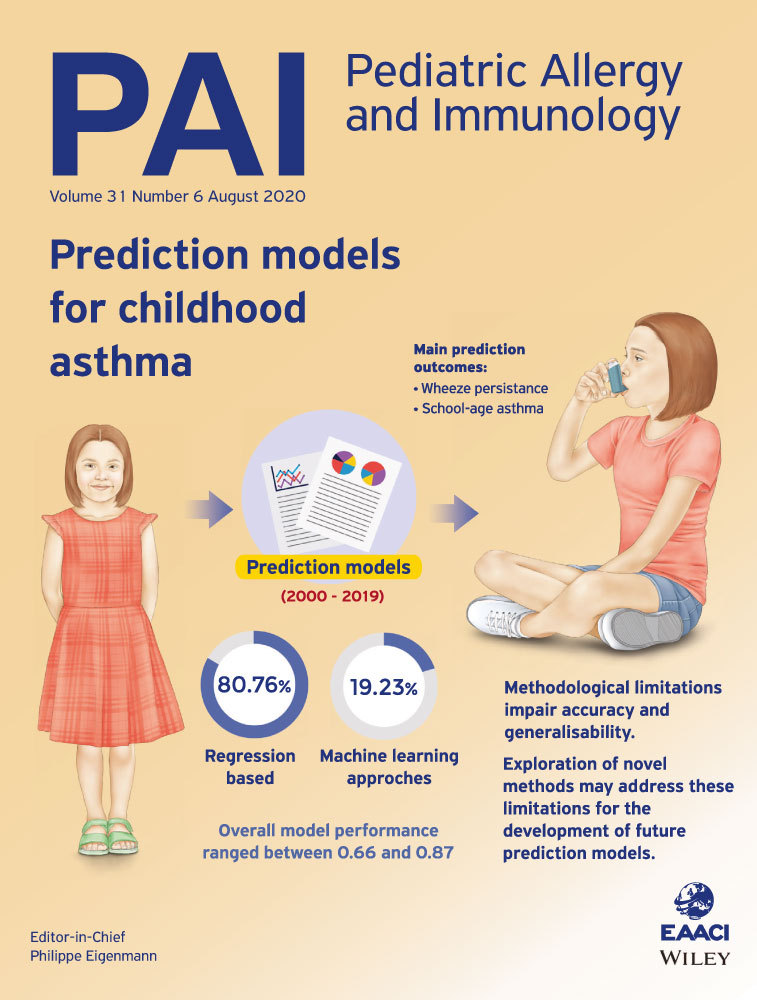Association between prenatal depressive symptoms and eczema in infants: The Born in Guangzhou Cohort Study
Funding information
This research was supported by the Ministry of Science and Technology of People's Republic of China (2016YFC1000304 and 2016YFC1000205), Guangzhou Science Technology and Innovation Commission (201807010086), and Guangzhou Municipal Health Commission (20191A031002).
Abstract
Background
Eczema is a growing threat on infants’ health, and the role of maternal depression in the risk of eczema's early onset is unclear. This study aimed to examine the associations of different exposure timing of prenatal depressive symptoms with offspring's eczema in infancy.
Methods
The study was part of the ongoing prospective Born in Guangzhou Cohort Study. Maternal depressive symptoms were assessed at both early (<20th week of gestation) and late pregnancy (≥33rd week of gestation to delivery) using the Self-Rating Depression Scale. Information on the diagnosis of eczema was collected when the children were 1 year old. Multivariable logistic regression was used to examine the association between prenatal depressive symptoms and infants’ eczema and test for moderation by parental history of allergic diseases.
Results
In this population, 7.7% (447/5825) of mothers experienced persistent depressive symptoms during pregnancy, 10.1% (590/5825) had depressive symptoms only at early pregnancy, and 8.4% (489/5825) of women experienced depressive symptoms only at late pregnancy. After adjusting for potential confounders, higher risks of eczema were observed in infants of mothers with persistent prenatal depressive symptoms when compared to those children without maternal depressive symptoms throughout pregnancy (OR: 1.55, 95% CI 1.19-2.03). These associations were marginally more pronounced among children in families without parents affected by allergic diseases than in other families (P for interaction = .064 for courses of prenatal depressive symptoms).
Conclusion
Persistent maternal depressive symptoms during pregnancy increased the risk of infants’ eczema, especially in children without family history of allergic diseases. These associations, if proved to be causal, could be an intervention target not only to improve women's health but also to prevent offspring's eczema.
CONFLICT OF INTEREST
The authors declare that they have no conflicts of interest.
Open Research
DATA AVAILABILITY STATEMENT
No additional data available.




